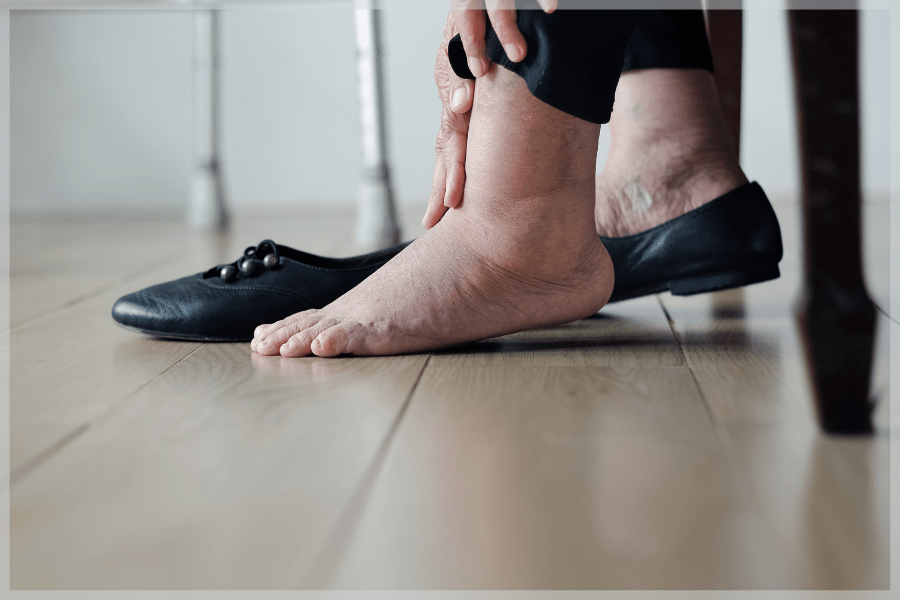
Heart disease is the leading cause of death in the US. American Heart Month aims to change that by raising awareness about the many ways adults of every age can lower their risk and live healthier, longer lives.
Updated February 1, 2023
Modified March 14, 2023
February Is American Heart Month
Heart disease kills an estimated 630,000 Americans annually, making it the leading cause of adult death in the US. So to encourage Americans to be proactive in the fight against heart disease, American Heart Month was established in 1963.
Coronary artery disease (CAD) is the most prevalent form of heart disease. However, a healthy lifestyle and medication can significantly lower CAD risk.
Heart Disease Facts
- A form of heart disease causes 1 in 4 deaths in the US (strokes cause 1 in 20).
- Cardiovascular diseases are the most significant cause of death worldwide (affecting over 17.3 million).
- Every 40 seconds, someone dies from cardiovascular disease or suffers a heart attack (about 734,000 people).
- Experts estimate that over 23.6 million people will die from heart disease by 2030.
- Blacks are more likely to develop heart disease, diabetes, and high blood pressure.
- Stroke and heart disease are the number one cause of death for Hispanic adults.
American Heart Month Raises Awareness About Common Heart Health Problems
Cardiovascular disease is a term for a broad range of complications. Here are some common cardiovascular problems for seniors:
- Heart attack or heart failure
- Arrhythmia
- Stroke
- Diabetes
- Pericarditis
- Valve problems
- Hypertension
- Cardiomyopathy
- High cholesterol
Seniors, their loved ones, and caregivers should all learn the symptoms of these conditions. With the proper treatment, many of these conditions are manageable. However, some can cause death or severe health problems if left unchecked.

Signs and Symptoms Of Heart Disease
Your body provides several signals to alert you to potential problems with your cardiovascular system. So throughout American Heart Month, commit some heart disease symptoms to memory, especially if you or someone you know is at risk.
Not every sign that manifests warrants an emergency room trip, but knowing when to seek medical help immediately is vital. If you notice these signs, get emergency medical attention:
- Heart palpitations
- Impaired vision
- Anxiety
- Sweating
- Slurred speech
- Trouble breathing
- Facial drooping
- Vomiting or nausea
- Numbness
- Dizziness
- Chest pain or tightness
- Fainting
- Fatigue
- Pain in the jaw, neck, back, arms, or other parts of the upper body.
The signs below, on the other hand, indicate that it’s time to make a doctor’s appointment:
- Continuous fatigue
- Lower body swelling
- Trouble breathing after physical activity
- High or low blood pressure
- Fluttering in the chest
- Irregular heartbeat, or one that is fast or slow.
Heart Disease Risk Factors for Seniors
Smoking, high blood pressure, and a sedentary lifestyle are seniors’ leading causes of heart disease. Other contributors include:
- Obesity
- Diabetes
- An unbalanced diet
- High blood pressure or cholesterol
- Excessive caffeine and alcohol consumption.
American Heart Month is the perfect time for older adults to educate themselves and make changes to protect their health.

Smoking
Smoking is among the top causes of preventable death in the US. In addition, it can perpetuate or worsen several health problems linked to heart diseases, such as atherosclerosis or high blood pressure.
On average, smokers live ten years less than those who don’t. Moreover, seniors are especially susceptible to smoking’s harmful effects. Yet, many seniors continue to smoke despite knowing the risks. Data shows that 8% of smokers are older than 65. Among the approximately 440,000 deaths associated with smoking, 70% are adults 60 or older.
If you are a smoker, make this the year you quit. Talk to your healthcare provider, caregivers, friends, and relatives. Form a strategy to stop and build new habits so that you can take control of your health.
High Blood Pressure
High blood pressure, or hypertension, is one of the primary contributors to heart disease. High blood pressure happens when the force of blood inside the veins becomes too high. This pressure stresses the arteries in the form of plaque build-up that narrows arteries.
If left untreated, plaque can lead to cardiovascular problems such as heart disease or heart attacks. If you struggle with high blood pressure, American Heart Month is the time to schedule an appointment and discuss a plan with your doctor.
Sedentary Lifestyle
Staying physically active is essential for many reasons, particularly since it supports heart health. Conversely, a sedentary lifestyle is among the most common risk factors for developing coronary artery disease. So during American Heart Month, consider finding a program that suits your lifestyle and needs. Everybody is different, and developing the right plan for you will make it easier to stick to all year long.
American Heart Month Promotes Healthy Heart Tips for Seniors
Heart disease might be one of the leading causes of death, but prevention is relatively straightforward and preventable. A well-balanced diet, frequent physical activity, plenty of sleep, and abstaining from smoking are the most effective ways to protect your heart. Here are some simple changes to try throughout American Heart Month and the rest of the year.
Eat Plenty of Fruits and Vegetables
According to the American Heart Association (AHA), consuming at least eight servings of fruits and veggies daily can help lower the chance of heart disease. Discuss how you can incorporate vibrant foods, particularly dark, leafy greens, into your diet with your doctor, relatives, or caregiver.
Moreover, fruits and veggies contain fiber, vitamins, and minerals. Besides supporting better cardiovascular health, these and other nutrients can help manage weight and blood pressure. So give your next meal a pop of color by adding some of your favorite fruits and vegetables.
Control Stress
American Heart Month helps bring awareness to other heart disease contributors, like chronic stress and anxiety. These issues are some of the less-talked-about risks, but they can become a severe detriment to your health.
Everyone handles anxiety differently, and there are many ways to manage stress, like deep breathing, mindfulness meditation, yoga, or stretching. You could also do activities like petting an animal, chatting with a friend, or taking a brief walk.

Improve Your Sleep Hygiene
Chronic sleep deprivation or lousy sleep quality interferes with metabolism, blood pressure, and inflammation. Additionally, these can raise the chances of heart disease. For seniors, quality sleep is essential. Although aging causes changes in our sleep patterns and habits, developing good sleep hygiene is crucial for staying healthy.
Furthermore, seniors typically need about 7-9 hours of good rest. Improve sleep quality by creating a nighttime routine or avoiding caffeine later in the day. A short nap during the day is also beneficial.
Exercise Regularly
Healthcare professionals have long urged regular exercise for people of all ages, including older adults. Regular physical activity controls blood pressure and supports cardiovascular and bone health. Additionally, it raises energy and helps ease symptoms of depression.
Getting active is one of the fastest ways to feel better. Experts suggest that exercise at least 30 minutes five days a week to get the most benefits. But, of course, those with chronic conditions should talk to their doctors before beginning a new regimen.
That goal may not seem obtainable if you live a relatively sedentary lifestyle. But rather than get discouraged, start slow and work yourself up gradually. Rather than push yourself to complete a strenuous 30-minute workout right off the bat, take a walk in your yard or neighborhood for 10 minutes each day. Of course, you can always add more time over several days or weeks.
If you feel inclined, increase the intensity of a casual stroll by carrying light hand weights. The AHA also suggests participating in muscle-strengthening activities at least twice a week. And, just like cardio, begin muscle training exercises at your comfort level. For example, you can perform them sitting down and slowly work up to standing as your strength and balance increase.
Regular stretching is equally important. It will help if you stretch after every workout or exercise session, regardless of its intensity. Muscles contract and become tense, but routine stretching improves flexibility and helps you feel more relaxed. Never stretch when cold, as it can cause injury or soreness.
MeetCaregivers Supports American Heart Month
Heart disease is a troubling problem among adults. However, American Heart Month supports health and wellness at every age by promoting educational events around the US throughout February.
A professional caregiver from MeetCaregivers can help seniors protect their cardiovascular health with exercise reminders, accompanying them on walks, and more. In addition, a caregiver can assist with meal preparation, grocery shopping, and transportation to appointments.
Call 1 (888) 541-1136, or find a caregiver today to find the perfect match.
Visit the Blog for more resources about senior health and safety.
- Bethany Village. (2018, February 6). February is American Heart Month: 4 Heart-Health Tips for Seniors. Retrieved January 30, 2020, from https://bethanylutheranvillage.org/heart-healthy-tips-for-seniors/
- Burns, D. M. (2000). Cigarette smoking among the elderly: disease consequences and the benefits of cessation. Cigarette smoking among the elderly: disease consequences and the benefits of cessation – PubMed. Retrieved January 30, 2020, from https://www.ncbi.nlm.nih.gov/pubmed/11067570
- CDC. (2022, August 22). Current Cigarette Smoking Among Adults in the United States. Retrieved January 30, 2020, from https://www.cdc.gov/tobacco/data_statistics/fact_sheets/adult_data/cig_smoking/index.htm
- Suni, E. (2022, September 22). How Sleep Deprivation Affects Your Heart. How Sleep Deprivation Affects Your Heart | Sleep Foundation. Retrieved January 30, 2020, from https://sleepfoundation.org/sleep-news/how-sleep-deprivation-affects-your-heart
- Suni, E. (2022, September 29). Sleep Hygiene. What Is Sleep Hygiene? | Sleep Foundation. Retrieved December 30, 2020, from https://www.sleepfoundation.org/sleep-hygiene
- Woodlands Group. (2018, February 1). February: American Heart Month. American Heart Month: 3 Risks for Seniors. Retrieved December 30, 2020, from https://www.woodlandsllc.com/american-heart-month-3-risks-for-seniors
